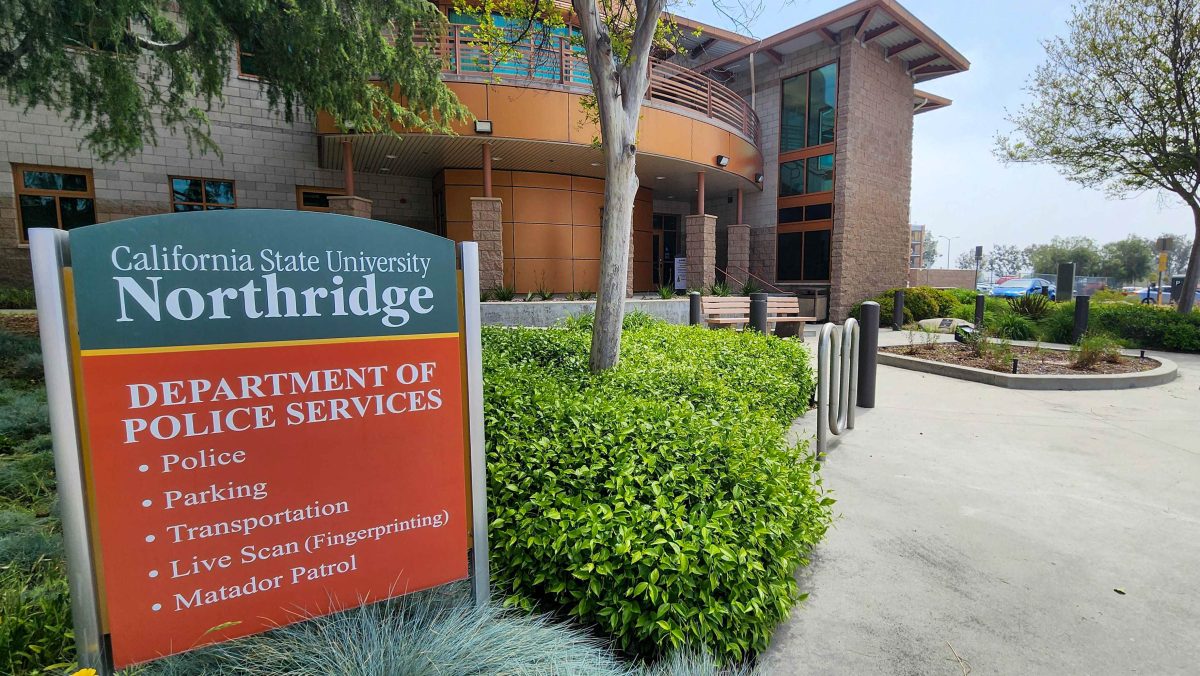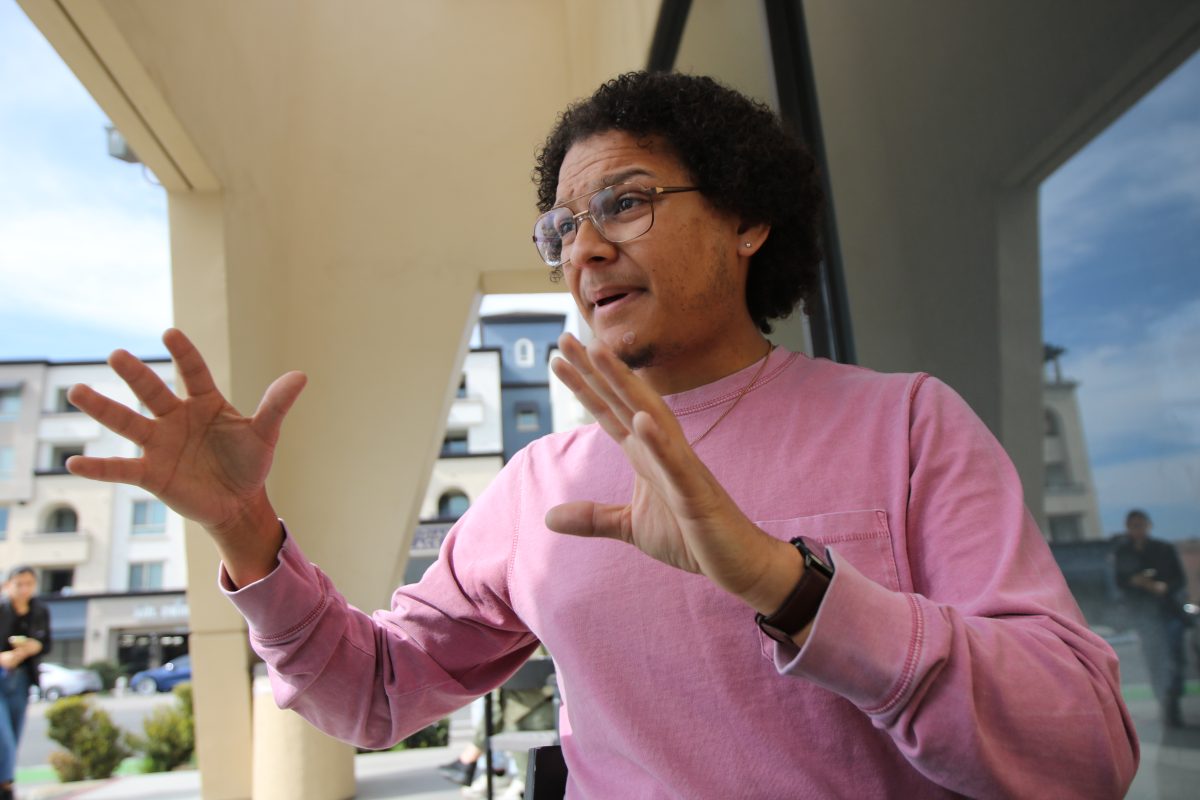The suspected gunman was photographed wearing a white shirt that displayed the words “human rights violatin” in black ink standing near the Oviatt Library.
About an hour later, a symphony of tones and vibrations marked the delayed news of a suspected gunman on campus at the Oviatt Library.
Students reacted via social med, expressing their feelings in various ways. Some left immediately while others decided to stay on campus.
Although the current generation of college students have been exposed to tragic events — from Sept. 11 to the Columbine shooting — the level of desensitization of the audience varies from person to person, according to psychology experts.
“The reactions have more to do with the personal history of people rather than a certain generation of people having a certain reaction,” said Dr. Mark Stevens, director of CSUN’s University Counseling Services. “How people respond to trauma is more about what their personal history has been.”
Technology has given individuals the ability to view violence second-hand through a variety of mediums, Stevens said. Desensitization can be seen through two paradigms: personal experience and access to media.
“I think that students are more consciously aware of the potential risk now. The technology, look at what it’s done, if there is a fight or incident on the campus it’s very likely that you are going to have some students that will document it through their cellphones,” Stevens said.
Jasmine Tabankia, psychology major, said the consistent watching of violent movies and video games gives people a first-hand feeling of the violence, whereas things happening far away can be easily forgotten without being desensitized.
“People become numb when they watch video games, because there’s so much killing going on,” she said. “Definitely psychologically effects people.”
Stevens explained that people may be somewhat desensitized when it comes to immediate reaction, but when something violent or atrocious happens near by, they respond with fear and desire to be protected from harm.
“I think that everyone at this campus was somewhat affected by this (suspected gunman) experience, and our nervous systems were shaken up a little bit,” Stevens said. “Those that were closest to it, their nervous systems were probably a little bit more activated than those who were on the other side of campus and didn’t see emergency personnel enter.”
Tabankia thinks she is more desensitized by things going on overseas than events happening in the U.S.
“I’m more cautious about school because it’s closer to home,” Tabankia said. “If they didn’t catch him, I wouldn’t have come (the next day), I was very gung ho about that.”
Seeing disasters on television and the Internet have groomed her to be hyper-sensitized, she added.
“Seeing all of the people that have died and all of the situations at different high schools where some random person who attends the school goes on a killing spree, knowing how realistic that is, and that it’s not some construed fantasy, but that it’s real, it makes me more alert and conscious of hostility,” Tabankia said .
Dr. Robert Gelhart, chairman and professor of forensic psychology at Argosy University, has been in the psychology field for over 30 years and evaluated criminal cases.
Gelhart said that sometimes when people have severe emotional distress they act illogically to signal that they are troubled, and as a sign they need help.
He explained that often when individuals threaten to commit a crime and don’t follow through, they are flagging themselves as in need of help.
The fact that the suspected gunman turned himself into police showed that he was considering violence and crying out for help, otherwise he could have turned himself in to a physician instead, he said.
Dr. Ronald Stephens, executive director of the National School Safety Center for 26 years, has studied some of the most violent attacks on campuses over the last decade.
He said it all boils down to the collaboration between the school, local emergency entities and the preparations they have put into place.
“It may just seem that it’s just paperwork, but it’s more than that. It’s a response plan,” Stephens said. “Get to know these response people. When a crisis unfolds, you don’t want to be meeting them for the first time.”





